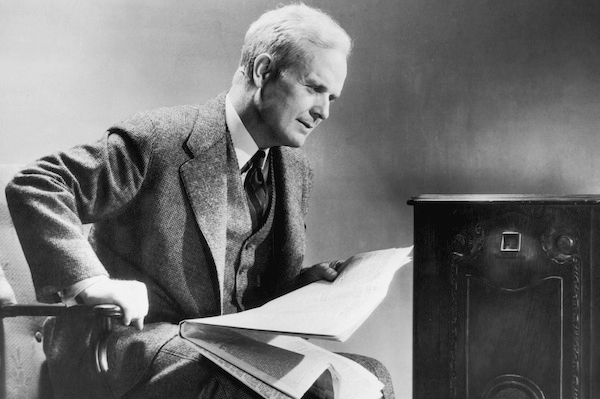My irritability grows with age and tends to attach itself to things that surprise even me — for example, to the widely popular sight of people riding horses on country roads. The smug, self-righteous look on their faces makes my blood simmer dangerously. And another thing that particularly grates with me at the moment is the ubiquitous use of the expression ‘no problem’. Until recently the normal response to a ‘thank you’ would be ‘that’s quite all right’ or ‘my pleasure’ or maybe even, in the American manner, ‘you’re welcome’. But now, in Northamptonshire at any rate, it is always ‘no problem’; and while this is presumably meant to be polite, it comes across to me as offensive.
Say someone entering a shop in front of you holds the door open for you to go through, and you thank them for doing it; if they say ‘no problem’, your gratitude dries up at once. What do they mean by it? Of course, there is no problem. What sort of problem could there possibly be in holding a door open for somebody? It’s such a basic little courtesy that only failure to perform it might be seen as problematic. Yet here’s this person claiming to have done something special and virtuous by failing to let a door shut in your face.
Here’s another example. Being old and boring and middle class, I listen a lot to Radio 4, which on the whole I enjoy — except for that moment between programmes when an announcer decides to tell you what station you are tuned into. ‘This is Radio Four,’ he says — or, rather, he doesn’t. He says, ‘This IS Radio Four,’ with the emphasis on the ‘is’. Until recently this weird inflexion occurred only occasionally on the BBC, but now it is routine, and I cannot imagine why.
It would make sense only if there were reason to doubt that the programme you were listening to was the one you wanted, as in ‘Don’t worry. This really IS Radio Four. Not Radio One’. But since there is no such possibility of doubt, it comes across as somehow boastful and celebratory without there being anything to be boastful or celebratory about. Imagine you were to get me on the telephone and were to ask me who was speaking, what would you think if I replied, ‘This IS Alexander Chancellor’? I expect you would think I was mad.
It is, if course, a well-known problem with the English language that there is often no consensus about how to pronounce it. But attempts are being made to undermine even those situations where consensus seems to exist. Have you ever heard anybody pronounce Lancaster ‘LanCASter’, with the stress on the second syllable? I would guess not; unless, that is, you have travelled on the Central Line of the London Underground to Lancaster Gate station, where your arrival is preceded by an announcement over the loudspeaker in which it is pronounced exactly that way.
Maybe I’m wrong. Maybe there are many more ways of pronouncing everything than I realise. After all, I have never heard anyone, on either side of the Atlantic, pronounce potato as ‘po-tah-to’, let alone oysters as ‘erst-ers’, though these are both proffered as valid pronunciations in the Gershwin song, ‘Let’s Call the Whole Thing Off’. There may therefore even be people who say Lancaster in the manner favoured by the London Underground. But there is no authority to which one can turn for guidance in these matters.
The BBC used to impose rules of pronunciation on its staff that others might have been tempted to follow, but it doesn’t any more. So nowadays anything goes, and it is no longer even clear how to be a snob in one’s use of language if one wants to, since the ‘U’ and ‘non-U’ rules of Nancy Mitford now seem hopelessly dated. It has even become rather ‘non-U’ to pay them any attention. What I am left with, however, is an unpredictable capacity to be irritated or distressed by certain words and certain ways of saying them, often for no obvious reason. This is probably due to prejudices acquired in the distant past for now obscure reasons. The world moves on; but as one gets older, one gets left further and further behind — and grumpier as a consequence.






Comments